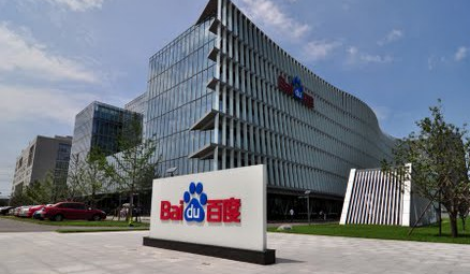Baidu, the largest Chinese search engine, is pushing the boundary of data center design with its cloud computing data centers. By integrating new hardware technologies including ARM-based servers, custom-designed all-in-one racks, 10Gb top-of-rack (TOR) switches and self-designed Solid State Disks (SSD), Baidu is boosting the performance of its cloud computing data centers. And it says it expects such efforts will lay the foundations for the technology benchmark for China’s internet data centers (IDC) of the future.
Self-designed 10Gb TOR switch
Baidu deployed a self-designed 10Gb TOR switch on over 5,000 servers in one of its cloud computing data centers. It is a server cluster which is believed to be the largest 10Gb TOR based cluster in the local market.
By using self-designed hardware and software, an original design manufactured module, as well as DAC (direct attached cable), the cost of Baidu’s 10Gb TOR is almost the same as the commercial 1Gb TOR switches, Baidu said.
Baidu started its research and development on the design of TOR switches in 2011 and launched first generation 10Gb TOR switch in 2012.
ARM on a large scale
One of Baidu’s cloud computing data centers in Nanjing is said to be the first to deploy ARM-based servers on a large scale internationally. By integrating the X86 and ARM platform, adjusting and migrating codes according to instruction sets, and improving debugging tools through the ARM server ecosystem, Baidu says the cloud computing data center gives full play to the advantages of 32-bit ARM servers.
It says the power requirement of ARM-based server is much lower than even the most energy efficient X86-based servers. Sources from Baidu say that ARM-based servers enable the data center to reduce total cost of ownership (TCO) by 25% and enhance storage density by 70%.
ARM chips are manufactured under license by semiconductor companies all over the world rather than by ARM Holdings itself, and part of the benefit lies in their open source nature.
“Baidu has obtained ten patents (related to ARM-based servers) while developing ARM-based servers. With the roll-out of ARM 64-bit processors in 2014, Baidu’s ARM-based technology is expected to become even more mature,” Baidu says.
Self-designed SSD
The cloud computing data center in Nanjing is also the first data center within the industry to deploy self-designed Solid State Disk (SSD) on a large scale.
It is estimated that Baidu’s data centers store hundreds of Petabytes (PB)of data, with its daily data processing capacity reaching dozens of PB. To address the huge challenge of real-time storage of massive data, Baidu developed the SSD products itself.
Compared with SATASSD, the performance of the SSD developed by Baidu is six times better, yet its cost is 10% less. Compared with PCIExpressFlash, the performance of Baidu’s SSD is two times better, yet its cost is 40% less, according to Baidu.
Customized rack servers
The cloud computing data center in Nanjing has also brought custom-designed Rack Servers online on a large scale for the first time in China.
The rack server consists of pre-integrated servers, switches and cabling systems, which will help to improve the onsite deployment efficiency significantly.
According to Zhu Yongzhong, director of Baidu’s systems department, Rack Servers helped Baidu resolve many issues in traditional colocation data centers, such as space and power density restrictions, cable mess and deployment efficiency, intelligent management and asset accuracy.
“With such a design, the Cloud Computing Data Center in Nanjing is able to reduce server TCO by 10% and increase peak delivery efficiency nearly ten times,”sources from Baidu said.
Rack Servers has been built to an open standard, which removes vendor lock-in and allows more freedom in the data center for equipment that is placed inside with a level of interdependence, from power to the servers themselves.
As a member of Open Compute Project (OCP), Baidu has been working closely with Facebook to promote the optimization and open sourcing of rack servers and explore the possibility of integrating Baidu’s Rack Server design and Facebook’s Open Rack design. It is also part of China’s rack level designed server open-sourcing project called Project Scorpio.
Data center energy efficiency
Baidu has also built some of the most energy efficient cloud computing data centers in China.
It uses a range of energy saving methods and technologies, optimizing power supply structure to reduce energy losses in conversion, using mains supply and UPS simultaneously for power supply on a large scale, enhancing supply/return water temperature to prolong free-cooling time, introducing variable frequency technology to chiller and using CFD software for optimizing server airflow.
By doing all of this,Baidu can use free cooling 50% of the year and it is said that its annual Power Usage Effectiveness (PUE) is 1.37 on average and can be as low as 1.18 under optimum conditions.

